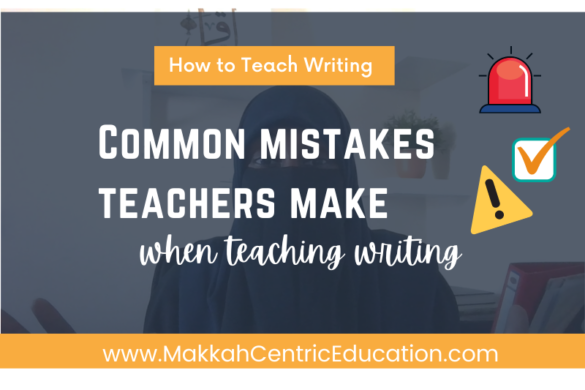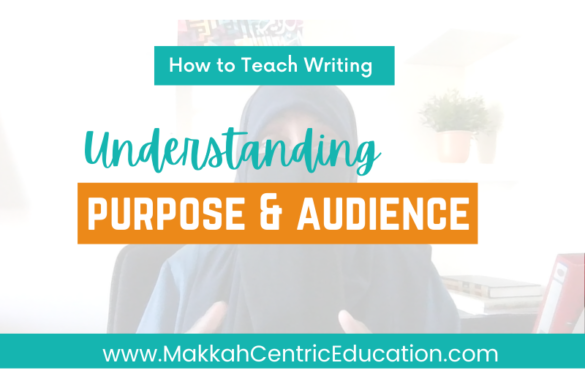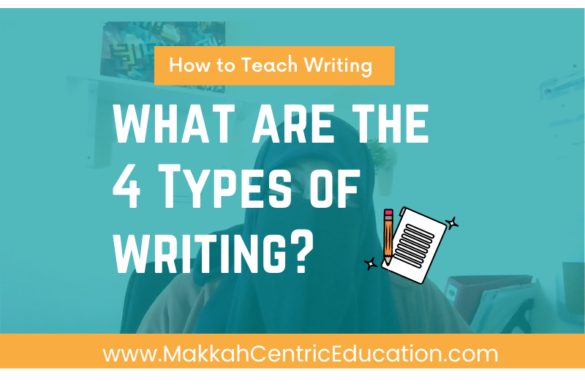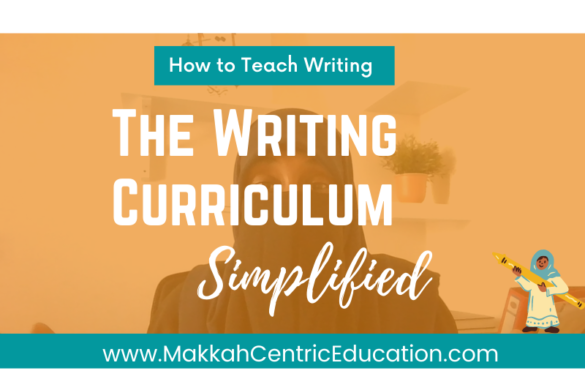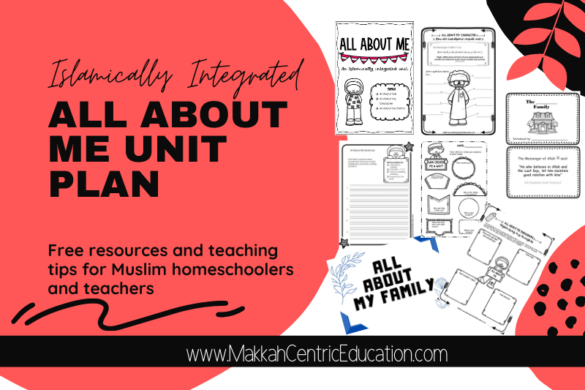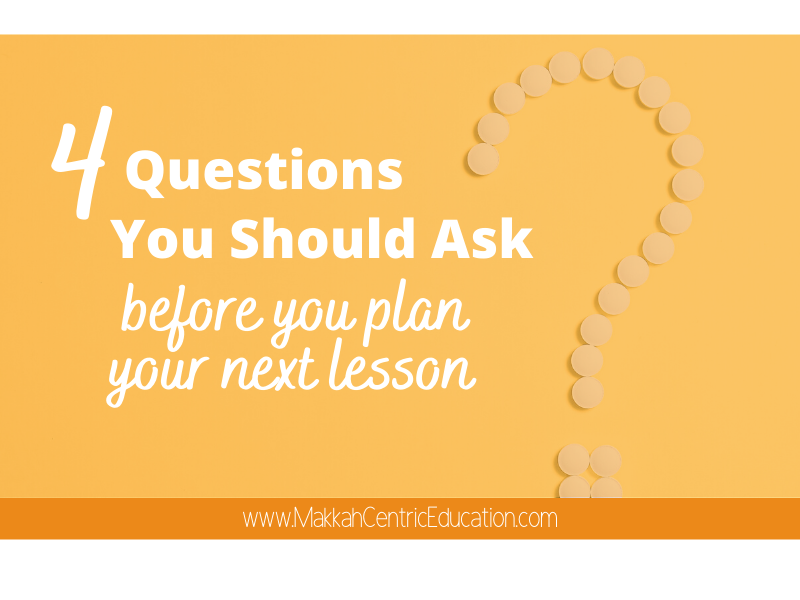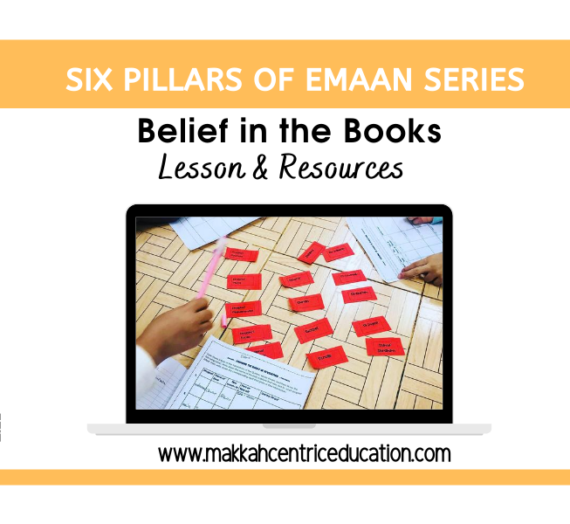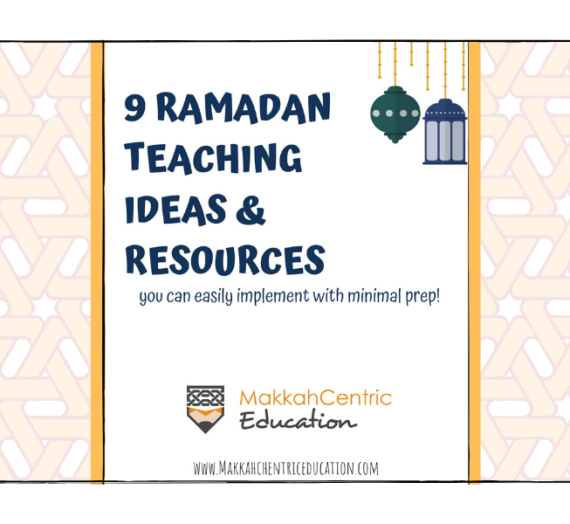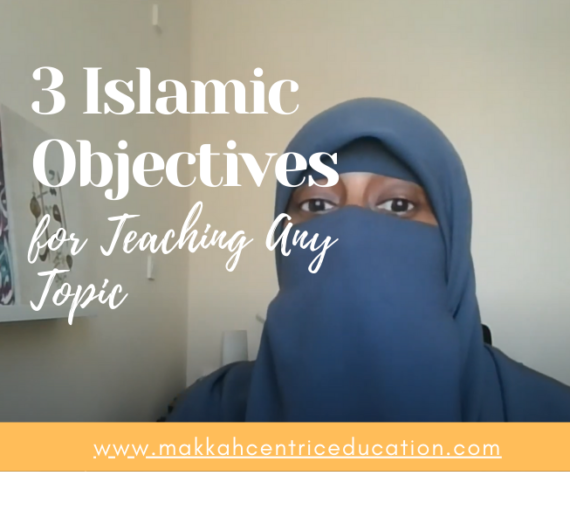You know when your child asks, “What’s the point of this?” and you say something generic like, “It will help you in the future”. But really, in your mind, you’re thinking, “I have no idea why we’re doing this”, but you can’t expose yourself out of fear of rebellion?
Ya, we’ve all been there! Some of you are probably there too often. And maybe you feel guilty or frustrated that you keep doing lessons that don’t really add up to much. You feel like you’re wasting time, especially when you look at what’s left of the curriculum and realize “we barely covered anything”.
Or maybe you don’t feel right that you got through a worksheet or completed a workbook, but there’s no context to the new acquired knowledge. “Does it really matter if we did this or not,” you ask yourself.
I know I sure felt like that, especially in my first year of teaching. I just couldn’t get clear on what exactly I needed to teach. The problem for me was not how to teach, but on what to teach and when. That feeling of not being clear and intentional about what I taught in my lessons was mentally draining to say the least.
I think what affected me the most was the guilt of wasting my students time because I wasn’t organized in my teaching. For me, that lack of clarity translated into “you’re a bad teacher”.
It was my first year, and I was inexperienced, but I made an intention to not allow the guilt I felt to paralyze me. I was not going to quit on my students, eventhough I felt they deserved better. More importantly, I was not going to quit on myself. So, I used that energy to learn more, research, ask questions, get training, and become a better teacher.
3 years later, I had a much more intense workload (now teaching grades 7 and 8, instead of grade 5), but this time is was far easier, way less stressful, and I felt more in control and even proud of my teaching. This is despite, teaching some of the subjects for the first time.
But what changed during that time?
How can it be easier and less stressful when the workload and responsibility is more intense? Grades 7 & 8 is when things start getting serious! Those who know know.
So, what’s the secret? It’s no secret. I got super clear on my teaching goals and objectives.
Setting objectives for your lessons and being clear on your teaching goals will save you so much time and, more importantly, stress.
- It will solve the problems I mentioned in the beginning of this post.
- It will help you filter the resources and materials you need and use
- You can more accurately allocate the appropriate time needed for the lesson, and not spend endless days and weeks on a topic unnecessarily.
- You’ll be more intentional about the activities you plan
- Your child will attach a purpose to the learning
In this post, I’m going break down four questions you should ask yourself before planning any lesson to help you gain clarity and focus.
Once I got clear on these questions, teaching became far easier, more exciting, and more fulfilling. Why? Because I could now see progress in my students. We were all on the same page. There was a purpose to the learning. And oh, students just behave better when the lesson has a goal and structure!
4 Things to be absolutely clear on when planning any lesson:
- The overall big picture goal
- the objectives for each individual lesson
- how you will assess the learning
- the Islamic relevance of the lesson
1. What is the overall goal?
I am a believer in teaching in units and not random individual lessons that do not build on one another. Sometimes, you can do a one off lesson on a completely new topic, if there is a need for it. But, generally speaking, your lessons should revolve around or lead up to one big idea, topic, or skill. This can be done through a unit study, a thematic unit, or a project based study.
Don’t skip around topics by doing fractions one day, then measurements the next day. Or learning about the water cylce on Monday and then space on Tuesday. Ask, what is the big picture. What skill or knowledge do I want my child to grasp well? This can’t be covered in sporadic lessons. There has to be an organized progression of lessons that teach, reinforce, and allows the child enough practice to eventually be able to demonstrate their understanding on their own.
What is that thing you hope for them to be able to do on their own?
Example
Let’s say the big idea that you’d like to focus on for a particular unit is for the students to appreciate Allaah’s Lordship (Tawheed Ar-rububbiyyah). So all the lessons under this unit will relate to topics that show that Allaah is the Creator, the Provider, the Sustainer, the Giver etc. You could incorporate lessons on plants, animals, space, agricultural, food chain, etc. within this unit, all tying back to Allaah’s attributes of Lordship. Eventhough, the lessons seem random, they are not because you are tying them together under a central theme. So part of each lesson, you’ll focus on the connection between the topic and Allah.
Make sense?
However, if you included a lesson the Great Wall of China, just because you found some great resources, it wouldn’t add any value to the big idea of your unit. I’m sure the lesson would be beneficial, but it just doesn’t fit here.
Tip: When you are planning your individual lesson, consider how it contributes to the overall theme or unit you’re working on. Is it relevant?
2. What is my objective for this specific lesson?
Once you are clear on the big picture, you can break it down into a series of lessons, each lesson focusing on a micro-topic that leads to the overall goal.
Example
Let’s say you are teaching a unit on paragraph writing. So you’ll need to spilt up your lessons so that you can spend time teaching about main ideas, topic sentences, supporting details, concluding sentences, transitions words, and possibly some relevant grammar and punctuation rules.
For your each specific lesson, you’ll want to be specific on what the learner is supposed to learn or achieve by the end of that lesson or session.
For example your lesson plan may read: “By the end of this lesson, students will be able to write an attention grabbing topic sentence for a paragraph“.
From this, it’s clear that you’ll be focusing on writing topic sentences in this lesson. So you plan and gather resources that help your child reach this specific objective. Even your search time will be reduced.
Tip: When planning each lesson, ask yourself: What is the goal of this particular lesson, and will it get us closer the overall goal? What should the child know by the end of this lesson?
3. How will I assess this lesson?
How will I check that the objectives were achieved? Assessments and evaluations are not only for school kids, they serve a great purpose when done right.
- It tells you, the educator if the child knows the stuff.
- It tells the child if he/she knows the stuff
- It gives the student evidence of his/her progress
- It can help you identify any gaps (e.g. maybe another lesson was needed before this one)
- It informs you if you need to spend more time on the topic.
Assessments are not just about ticking a box to prove that you taught the subject, but rather its about ensuring that learning actually happened. That your child has grasped the knowledge or skill well. If it was just about ticking a box, then the topic wasn’t important to begin with!
Assessing the learner doesn’t have to be complicated. It can be as simple as checking their completed work, monitoring them as they complete the activities, or asking them to explain what they’ve learned. It can be oral, written, or even drawn.
4. What is the Islamic connection or benefit of this lesson?
If you want to raise an Islamically inspired child, then try to find an Islamic connection to everything you teach, even if subtle.
Here are some ideas
- Use an Islamic topic to teach core skills (e.g. Teaching explanatory writing in a unit on wudu or salah, or teaching percentages during a unit on Zakat)
- Incorporate Islamic perspectives in a curriculum topic (e.g. Referencing Quranic verses and hadiths during a lesson on bees, clouds, etc.)
- Highlighting or extracting Islamic themes throughout the unit (e.g. Focusing on charity, truthfulness, reliability, helpfulness during a novel study)
- Give the knowledge a spiritual purpose
- Assign projects or tasks that require the student to use the new knowledge/skill for an Islamic benefit
- Connect the lesson to Allah’s names and attributes
- Inspire righteous action through the new knowledge (Making an action plan to reduce water wastage after a lesson on conserving energy).
- Reinforce the concept of ihsan and why they should strive for excellence in everything, including academics.
The Prophet Muhammad, salallahu ‘alayhi wa salam, used to seek refuge from four things. One of them being “knowledge that does not benefit“.
Therefore, our goal for education is not just to gain as much information as possible, but to transform us into better Muslims, better humans.
اللَّهُمَّ إِنِّي أَعُوذُ بِكَ مِنْ عِلْمٍ لَا يَنْفَعُ وَمِنْ قَلْبٍ لَا يَخْشَعُ وَمِنْ نَفْسٍ لَا تَشْبَعُ وَمِنْ دَعْوَةٍ لَا يُسْتَجَابُ لَهَا
“O Allah, I seek refuge in You from knowledge which does not benefit, from a heart that does not entertain the fear (of Allah), from a soul that is not satisfied and the supplication that is not answered.” (Sahih Muslim)
Being clear on what you want to teach and how it will contribute to your learners’ Islamic identity and spiritual development becomes extremely important.
Key Take Aways
In this post, I shared 4 questions you should ask before you plan your lessons. Here’s a summary of how this helps:
- Asking these questions, and planning for them, will help you get clear on what you need to teach, and why it’s valuable.
- When you are clear on what you’re teaching, you’ll save time and energy, and won’t feel like you’re all over the place.
- The learning will also make more sense to the student because it will have context and lead to one goal.
- Being focused and intentional will bring you and them results.
- Maybe you were used to covering everything in a textbook, or completing a workbook from beginning to end. Well, now that you know how to be more clear and intentional, you can skip pages, sections, and even entire lessons if they do not align with your big picture goal.
- Just because it’s in a textbook, doesn’t mean its valuable to you or your students.
- I hope you’ll get into the habit of asking these questions. So the next time your child asks, “How will this help me?” you’ll have an answer!
Oh ya, if you haven’t already, download my free lesson plan template, and get super clear now.
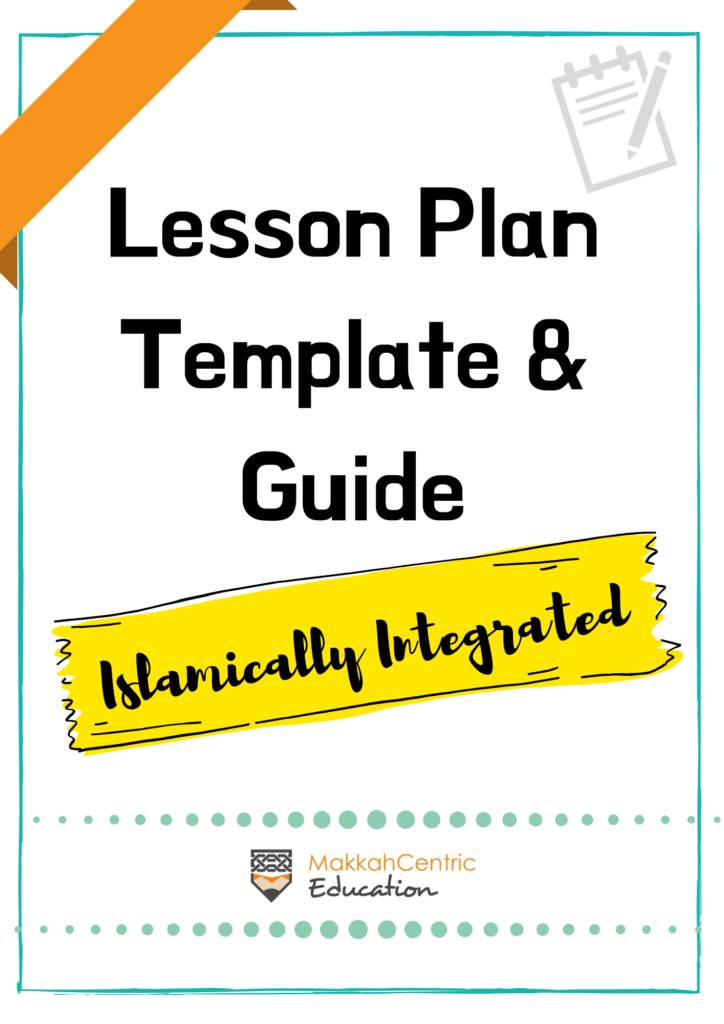
Your Turn
I bet you’re buzzing with ideas. In the comments, tell me one thing you’ll like to try for your next lesson.

